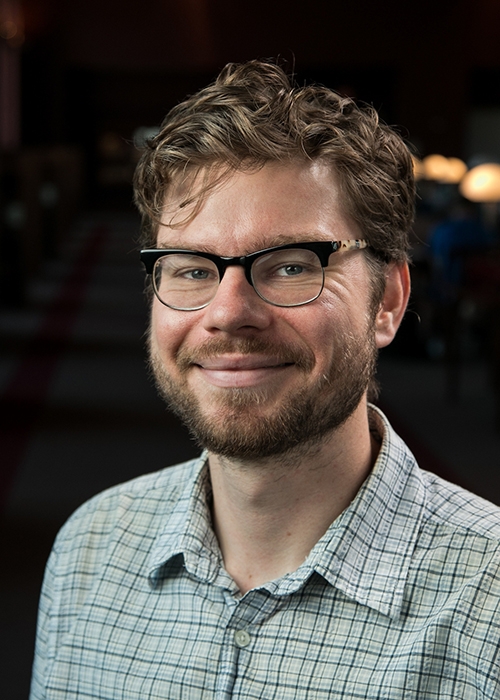Faculty Spotlight: Frank Aylward
November 9, 2021

November 9, 2021

Microbial communities, or microbiomes, are central to life on earth. Nearly every habitat and organism hosts a diverse community of microbes forming their collective microbiome. Each day we walk through a vast invisible network of environmental microorganisms. And GCC Affiliate Frank Aylward’s research as led him to study microorganisms from both the land and the sea.
Aylward’s first interest in the interface of microbes, ecology, and evolution started in rural southern Arizona where he grew up. His interests led him to complete his undergraduate education at University of Arizona where he studied the origins of multicellular organisms using green algae. He then obtained a PhD in Microbiology from the University of Wisconsin-Madison where he researched the symbiotic relationship between leaf-cutter ants, cultivated “fungus gardens” where they procure their food, and the commensal microbial community that facilitates the system.
Returning his interests to the aquatic biosphere, Aylward joined the lab of famed marine microbiologist, Edward DeLong. Working at both the Massachusetts Institute of Technology and the University of Hawai’i at Mānoa, Aylward explored the ecological function of cyanobacteria in the open ocean and its importance as a marine keystone species.
Aylward joined the Virginia Tech and the Global Change Center (GCC) community in 2017, as assistant professor in the Department of Biological Sciences. Aylward’s current research broadly focuses on microbial diversity and genome evolution in multiple different microbial groups, including giant viruses, bacteriophages, and several lineages of bacteria and archaea.
In a 2020 Nature article, Aylward revealed the impact that large, double-stranded DNA viruses, or “giant viruses,” have on eukaryotic organisms and their ecosystems around the globe. “By introducing new genomic material into hosts, viruses can shape the evolution of cellular life through a process called endogenization,” said Aylward.
In an article published earlier that year, Aylward found, “several giant virus genomes that encode genes typically only found in cells, some of which appear to be involved in metabolic processes,” he added. This work reveals the importance of viruses in eukaryotic evolution and portends what may happen to current species as climate change creates ecological pressure around the world. IGC Fellow and co-author of the study Alaina Weinheimer, is pursuing this line of inquiry further as part of her doctoral degree.









